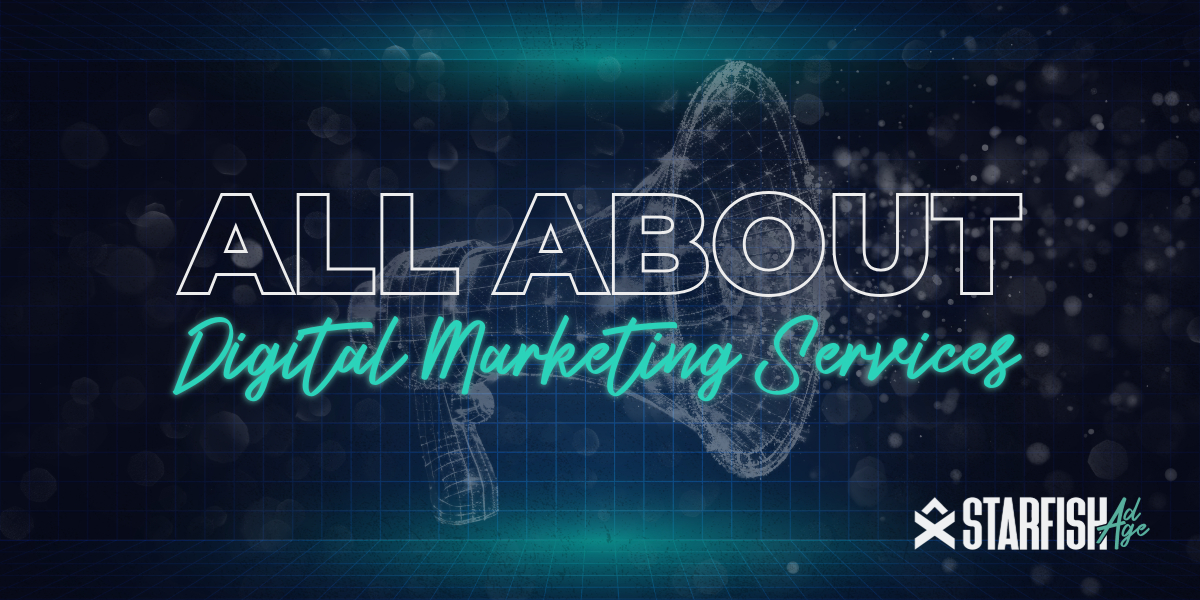
What Are The Different Digital Marketing Services?
Learn about SEO, PPC, social media marketing, content marketing, and more to drive traffic and conversions. Read now!
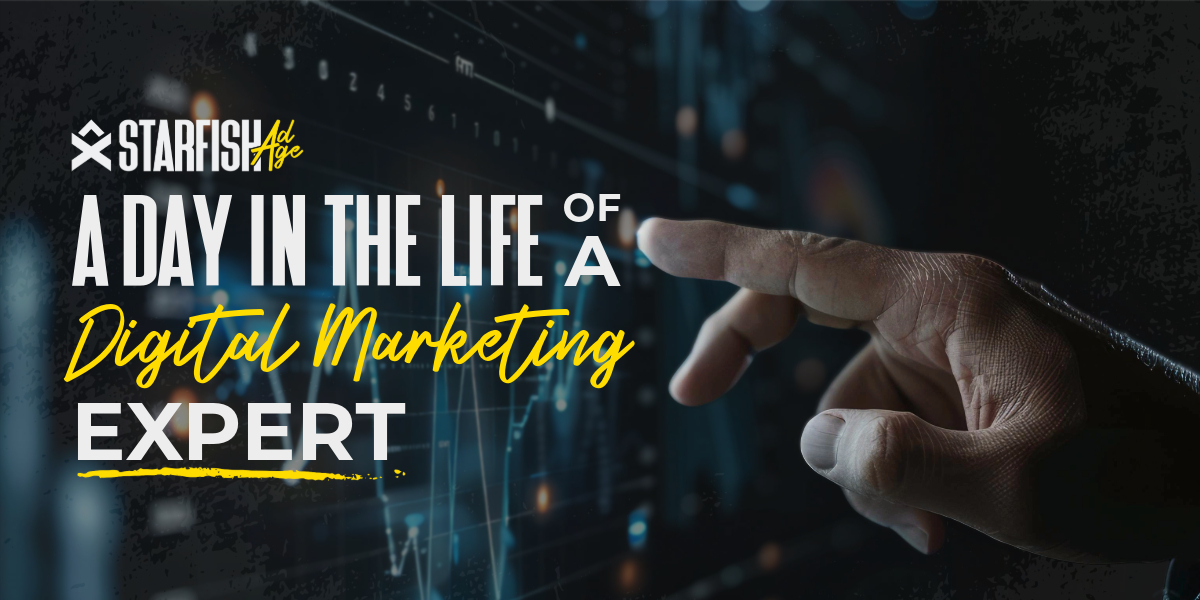
Welcome! Let’s discuss digital marketing—the world where business meets creativity and technology. Think of digital marketing as a bridge that connects businesses to their audience through various online channels. It’s more than just posting on social media. From email campaigns to SEO, digital marketers use various strategies to get their message across effectively. Digital marketers analyze trends, understand consumer behavior, and implement tactics that drive engagement and sales. This blend of art and science makes digital marketing a key component of any business strategy.
Every business, big or small, can benefit from a solid digital marketing strategy. Traditional marketing methods, while still valuable, often fall short of reaching the vast number of people who now rely on the Internet for information, shopping, and entertainment. This shift means businesses must meet customers where they are: online.
Digital marketing encompasses all marketing efforts that use the internet or electronic devices. This broad field includes various strategies like SEO, content marketing, social media marketing, email marketing, and PPC advertising. Each of these strategies plays a vital role in connecting with potential customers and guiding them through the sales funnel.
Digital marketing is the use of digital channels to promote or market products and services to consumers and businesses. It includes online methods such as search engines, social media, email, and websites to connect with current and prospective customers. While it shares some similarities with traditional marketing, its unique focus on digital and social media management often sets it apart.
The primary objectives of digital marketing are to increase brand awareness, generate leads, and drive sales. By using various online marketing channels together, businesses can reach a larger and more targeted audience than traditional methods allow. Building a robust online presence helps establish credibility and trust, which are essential for attracting and retaining customers.

Digital marketing specialists wear many hats, juggling a variety of tasks to ensure businesses reach their online goals. Their primary role is to develop and implement marketing strategies that attract and retain customers. This involves understanding market trends, analyzing data, and creating campaigns that speak directly to the target audience. They use tools like Google Analytics, social media platforms, and email marketing software to track performance and make data-driven decisions.
“Digital marketing managers and specialists are responsible for a wide range of activities aimed at boosting a company’s online presence. One of their primary tasks is to conduct market research to understand what customers want and how they behave online. This involves analyzing competitors, identifying target demographics, and staying up-to-date with industry trends. Armed with this knowledge, they can create effective marketing strategies that resonate with their audience.
Creating and managing online campaigns is at the heart of a digital marketing specialist’s job. This process starts with the digital marketing manager setting clear objectives, whether it’s increasing brand awareness, generating leads, or driving sales. They then select the appropriate channels, such as Google Ads, Facebook, text, or email, and craft compelling messages that will capture the audience’s attention. Every detail, from the wording of an ad to the timing of a social media post, is carefully planned to ensure maximum impact.
Once the campaign is live, the work is far from over. Digital marketing specialists must continually monitor its performance, using analytics tools to track key metrics like click-through rates, conversion rates, and return on ad spend. They analyze this data to identify what’s working and what isn’t, making adjustments as needed to optimize results. This might involve tweaking ad copy, targeting a different audience segment, or reallocating the budget to more effective channels. The goal is to ensure the campaign reaches and engages the right people, ultimately driving the desired outcomes.

Content creation is a major part of any digital marketing campaign, requiring creativity and strategic thinking. Digital marketing specialists often start by developing a content strategy that aligns with the overall marketing goals. They decide on the types of content that will be most effective, such as blog posts, videos, infographics, or social media updates. Each piece of content is crafted to engage the target audience, provide value, and encourage them to take action, whether it’s subscribing to a newsletter, sharing a post, or making a purchase.
Creating content is just the beginning; promoting it is equally important. Digital marketing specialists use various tactics to distribute content and increase its reach. This might include optimizing blog posts for search engines, sharing videos on various social media channels, or sending articles via email newsletters. They also engage with the audience by responding to comments and encouraging discussions, building a community around the content. By consistently delivering high-quality, relevant content, they help establish the brand as a trusted authority in its field.
Search Engine Optimization (SEO) is all about making your website more attractive to search engines like Google. When done right, SEO can significantly boost your site’s visibility, driving more organic traffic. This involves optimizing your website’s content and structure to rank higher in search engine results. By targeting specific keywords and ensuring your site is technically sound, you make it easier for search engines to understand and rank your content.

Pay-Per-Click (PPC) advertising is an effective method to quickly reach your target audience. With PPC, you pay a fee each time someone clicks on your ad, making it a cost-effective way to drive traffic to your site. Platforms like Google Ads and social media networks allow you to create ads that appear when users search for specific keywords or meet certain demographic criteria. This precise targeting ensures your ads reach the right people at the right time.
Message marketing is a powerful tool for connecting directly with your audience. By sending personalized text and email messages to subscribers, you can nurture relationships and keep your brand top of mind. Whether you’re announcing a new product, sharing a blog post, or offering a discount, text, and email allow you to communicate in a way that feels personal and direct. The key is to provide value in every message, ensuring that recipients look forward to hearing from you.

Social media marketing is about connecting with your audience, where they spend a lot of their time. Platforms like Facebook, Instagram, X, TikTok, and LinkedIn offer unique opportunities to engage with your customers and build a community around your brand. By sharing valuable content, responding to comments, and participating in conversations, you create a space where your audience feels heard and valued.
Digital marketing isn’t just a one-size-fits-all approach; it encompasses various specialized areas that cater to different aspects of online promotion. These specialized areas allow marketers to focus on specific strategies that best suit their business goals. From affiliate marketing to viral campaigns, each specialization requires unique skills and approaches to achieve optimal results.
Understanding these specialized areas can help businesses tailor their marketing efforts more effectively. By identifying which strategies align with their objectives and audience, companies can allocate their resources wisely and maximize their impact.
Affiliate marketing involves partnering with individuals or other businesses to promote your products or services. Affiliates earn a commission for each sale or lead they generate through their marketing efforts. This approach allows businesses to expand their reach without significant upfront costs, as affiliates only get paid when they deliver results. It’s a win-win situation that can drive substantial growth.
To succeed in affiliate marketing, you need to choose the right partners. Look for affiliates with an audience that matches your target market. Regular communication and transparent tracking systems help maintain strong relationships and ensure everyone stays motivated. With the right affiliates, you can tap into new markets and boost your sales.

Search Engine Marketing (SEM) involves promoting websites by increasing their visibility in search engine results through paid advertising. Unlike SEO, which focuses on organic search results, SEM uses paid tactics like Google Ads to place your business at the top of search pages. This method can generate immediate traffic and attract potential customers who are actively searching for your products or services.
Creating a successful SEM campaign requires careful planning and ongoing management. You need to choose the right keywords, create compelling ad copy, and set a budget that aligns with your goals. Monitoring the performance of your ads and making adjustments based on the data is essential to maximizing your return on investment. By targeting the right audience with well-crafted ads, SEM can drive high-quality traffic to your site and boost conversions.
Mobile marketing focuses on reaching customers through their smartphones and tablets. With the increasing use of mobile devices, this form of marketing has become important for businesses looking to connect with consumers anytime, anywhere. Mobile marketing includes various strategies such as SMS campaigns, mobile apps, and mobile-friendly websites, all designed to engage users on the go.

Viral marketing aims to create content that users want to share with their friends and followers. The goal is to produce something so engaging, entertaining, or informative that it spreads quickly across the internet, much like a virus. This type of marketing can lead to massive exposure and brand recognition without significant spending on advertising.
To create viral content, you need to understand what resonates with your audience. This could be a funny video, a heartfelt story, or an innovative product demonstration. The key is to evoke an emotional response that compels people to share. While there’s no guaranteed formula for making content go viral, creativity, timing, and understanding your audience’s preferences are critical. When successful, viral marketing can dramatically increase your brand’s visibility and attract new customers.
Analytics and reporting provide insights into the performance of your campaigns. By tracking various metrics, such as website traffic, click-through rates, and conversion rates, you can understand how well your marketing efforts are working. These insights allow you to identify what’s effective and what needs improvement, helping you make informed decisions and optimize your strategies.
Regular reporting helps keep everyone on the same page. By sharing results with your team, stakeholders, or clients, you can demonstrate the value of your digital marketing skills and activities and justify your budget. Reports also highlight trends over time, showing how your efforts contribute to long-term goals. By consistently analyzing data and reporting on progress, you can ensure your digital marketing remains aligned with business objectives and continues to drive success.
Automation streamlines digital marketing processes, making them more efficient and scalable. Tools like email automation, social media schedulers, and customer relationship management (CRM) systems handle repetitive tasks, freeing up time for marketers to focus on strategy and creativity. For instance, email automation allows you to send personalized messages based on user behavior, ensuring timely and relevant communication with your audience.
Effective digital marketing relies on a mix of strategies and techniques tailored to your specific goals and audience. Whether you’re a content marketing specialist focusing on SEO, social media marketing, or content creation, each approach requires careful planning and execution. The key is to understand your target audience, identify the best channels to reach them, and create engaging content that addresses their needs and interests.

Developing a digital marketing strategy starts with understanding your business goals and target audience. You need to define what you want to achieve, whether it’s increasing brand awareness, generating leads, or boosting sales. Once you have clear objectives, you can identify the best channels and tactics to reach your audience and accomplish your goals. This might include SEO, social media marketing, content creation, email campaigns, and paid advertising.
Implementation and monitoring are the keys to a successful strategy. After outlining your plan, you need to execute it effectively, ensuring all elements work together seamlessly. Regularly tracking your progress and measuring results allows you to adjust your tactics as needed. This might involve tweaking your messaging, shifting your budget, or exploring new opportunities. By staying flexible and responsive, you can optimize your strategy and ensure it continues to deliver the desired outcomes.
Content marketing focuses on creating valuable, relevant content to attract and retain a clearly defined audience. This could include blog posts, videos, infographics, and social media updates, all designed to provide information that your audience finds useful or entertaining. By consistently delivering high-quality content, you can build trust and establish your brand as a go-to resource, which helps drive customer loyalty and engagement.
Data-driven marketing involves using insights from data analysis to inform your marketing strategies. By examining metrics such as website traffic, conversion rates, and customer behavior, you can understand how well your marketing efforts are working. These insights allow you to identify what’s effective and what needs improvement, helping you make informed decisions and optimize your strategies.
Personalization in marketing means creating tailored experiences for your users based on their preferences and behaviors. This can involve personalized email content, product recommendations, or targeted ads. By addressing individual needs and interests, you can enhance user engagement and satisfaction, leading to higher conversion rates and stronger customer relationships.

A/B testing involves comparing two versions of a marketing asset to determine which performs better. This could be anything from email subject lines to landing page designs. By testing different elements, you can identify what resonates most with your audience and refine your approach accordingly. Regular A/B testing helps ensure your marketing efforts are as effective as possible, driving higher engagement and conversions.
Campaign management encompasses the planning, execution, tracking, and analysis of marketing campaigns. It involves coordinating various elements, such as budget, timeline, and resources, to ensure everything runs smoothly. Effective marketing campaign and management ensures that all aspects of a campaign are aligned with your overall marketing goals, helping you achieve desired outcomes efficiently.
Planning and executing marketing campaigns involves setting clear objectives, defining your target audience, and developing a strategic approach to reach them. This includes selecting the right channels, crafting compelling messages, and scheduling activities for maximum impact. Successful execution requires careful coordination and attention to detail, ensuring all elements work together seamlessly to achieve your campaign goals.
Monitoring campaign performance involves tracking key metrics to assess how well your campaigns are doing. This can include metrics like click-through rates, conversion rates, and return on investment. Regular monitoring helps you identify areas of success and those needing improvement, allowing you to make data-driven adjustments to optimize your campaigns and achieve better results.
Adjusting strategies based on data involves using insights from analytics to refine your marketing efforts. By analyzing performance metrics, you can identify what’s working and what’s not and make the necessary changes to improve outcomes. This continuous optimization helps ensure your strategies remain effective and aligned with your marketing goals, ultimately driving better results.
Digital marketers often face challenges such as staying updated with rapidly changing technologies, managing data privacy concerns, and measuring ROI. Additionally, standing out in a crowded online space and adapting to algorithm changes on platforms like Google and Facebook can be daunting. Overcoming these challenges requires continuous learning, flexibility, and strategic thinking.
Staying updated with industry trends is essential for digital marketers to remain competitive. This involves regularly reading industry blogs, attending webinars and conferences, and participating in professional networks. By keeping abreast of new tools, techniques, and best practices, marketers can adapt their strategies to meet evolving consumer expectations and technological advancements.

Adapting to algorithmic changes is a constant challenge for digital marketers. Search engines and social media platforms frequently update their algorithms, affecting how content is ranked and displayed. To stay effective, marketers must monitor these changes closely, adjust their strategies accordingly, and ensure their content remains relevant and high-quality to maintain visibility and engagement.
Managing your online reputation involves monitoring and influencing how your brand is perceived on the internet. This includes addressing customer reviews, managing social media interactions, and ensuring positive search engine results. By actively engaging with your audience and addressing concerns promptly, you can build a strong, positive online reputation that enhances customer trust and loyalty.
Collaboration with designers and developers is important in all digital marketing campaigns. Marketers need to convey their vision and requirements clearly to ensure that the final product aligns with campaign goals. Effective communication and teamwork result in visually appealing and functional websites, ads, and other digital assets that enhance the user experience and drive engagement.

Collaborating with sales teams ensures that marketing efforts align with sales objectives and that both teams work towards common goals. This partnership helps in creating more targeted marketing campaigns, generating high-quality leads, and providing sales with the necessary tools and insights to close deals. Effective collaboration leads to better overall performance and higher revenue.
Building relationships with influencers can significantly expand your brand’s reach and credibility. Influencers have dedicated followings that trust their opinions, making them powerful advocates for your products or services. By partnering with influencers who align with your brand values, you can tap into their audience and benefit from their endorsement, boosting your visibility and engagement.
The future of digital marketing lies in embracing new technologies and adapting to changing consumer behaviors. Innovations such as artificial intelligence, voice search, and augmented reality are set to transform how marketers connect with audiences. Staying ahead means being open to experimentation, continuously learning, and evolving your strategies to meet the demands of an increasingly digital world.
Emerging technologies like artificial intelligence, blockchain, and virtual reality are reshaping digital marketing. AI can enhance personalization and automate tasks, blockchain offers transparency in ad transactions, and VR provides immersive experiences. Adopting these technologies can help marketers create more engaging, efficient, and trustworthy campaigns, driving better results and customer satisfaction.
Effective digital marketing requires a strategic approach, clear goals, and consistent execution. Key practices include understanding your audience, creating valuable content, optimizing for search engines, and leveraging data to refine your strategies. Regularly reviewing and adjusting your efforts based on performance metrics ensures you stay on track and achieve your marketing objectives.

Ethics in digital marketing involves promoting transparency, honesty, and respect for user privacy. Marketers should avoid deceptive practices, respect consumer data, and provide clear and truthful information. Upholding ethical standards builds trust with your audience, enhances your brand’s reputation, and ensures long-term success in your marketing efforts.
Respecting user privacy and ensuring data security are fundamental responsibilities in digital marketing. Marketers must handle personal information with care, comply with data protection regulations, and be transparent about how data is used. Prioritizing privacy and security not only builds trust with your audience but also protects your brand from legal and reputational risks.
Digital marketing has a significant impact on business growth by increasing visibility, attracting new customers, and fostering customer loyalty. Through targeted campaigns and data-driven strategies, businesses can reach a wider audience, generate higher engagement, and boost sales. The ability to measure and optimize performance ensures that marketing efforts contribute effectively to long-term business success.
Staying ahead in digital marketing requires continuous learning, adaptability, and innovation. Marketers should keep up with industry trends, invest in new tools and technologies, and experiment with different strategies. By being proactive and responsive to changes in digital advertising, marketers can maintain a competitive edge and drive sustained success for their brands.

Encouraging innovation and creativity in marketing involves fostering a culture that values fresh ideas and experimentation. Marketers should be open to new approaches, take calculated risks, and learn from both successes and failures. By promoting a mindset of curiosity and continuous improvement, businesses can develop unique and engaging campaigns that captivate their audience and drive growth.
Digital marketers develop and implement strategies to promote a business online. This includes managing social media accounts, optimizing websites for search engines (SEO), creating engaging content, running pay-per-click (PPC) campaigns, and analyzing performance data to improve results.
Digital marketing is essential because it allows businesses to reach a larger and more targeted audience. With most consumers spending a significant amount of time online, digital marketing helps businesses meet customers where they are, increasing brand awareness, generating leads, and driving sales.
SEO improves a website’s visibility in search engine results, driving more organic traffic. By using keyword research and optimizing content and website structure for specific keywords, digital marketers can attract users who are actively searching for related products or services, leading to higher engagement and conversions.
Content creation involves producing valuable and relevant material, such as blog posts, videos, and social media updates, to attract and engage an audience. High-quality content helps build trust and authority, encouraging audience interaction and fostering long-term customer relationships.
Digital marketers use analytics tools to track metrics such as website traffic, click-through rates, conversion rates, and return on investment. Regular analysis of these metrics helps them understand what’s working, make data-driven adjustments, and optimize future campaigns for better performance.

Learn about SEO, PPC, social media marketing, content marketing, and more to drive traffic and conversions. Read now!
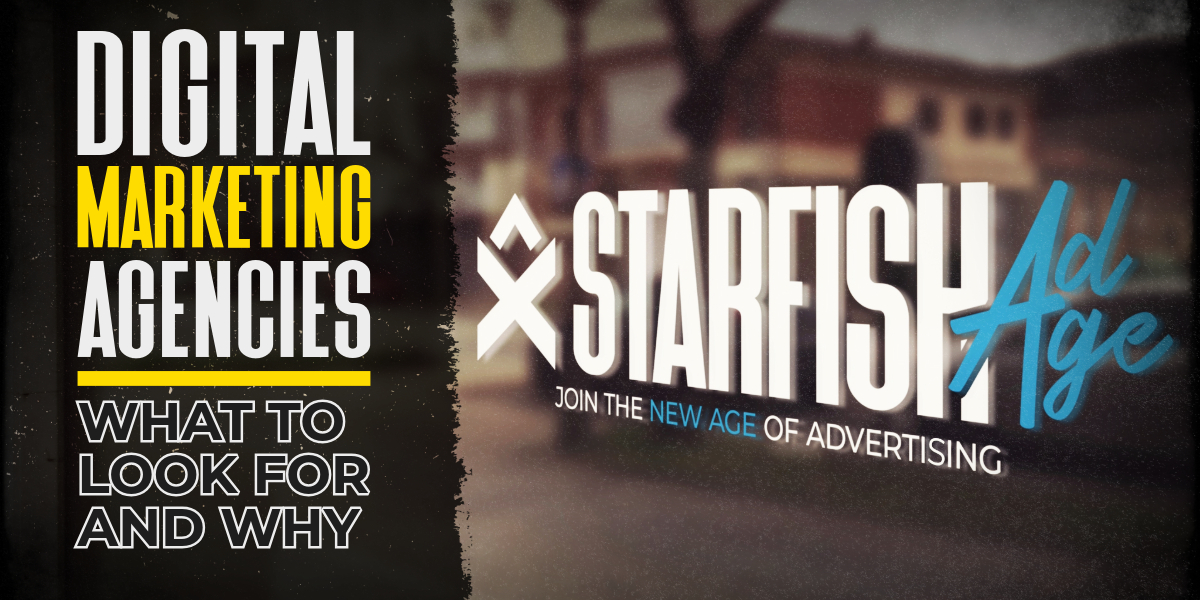
Learn how to select the best digital marketing agency for your small business, the benefits of hiring an agency, and tips for maximizing your online presence.
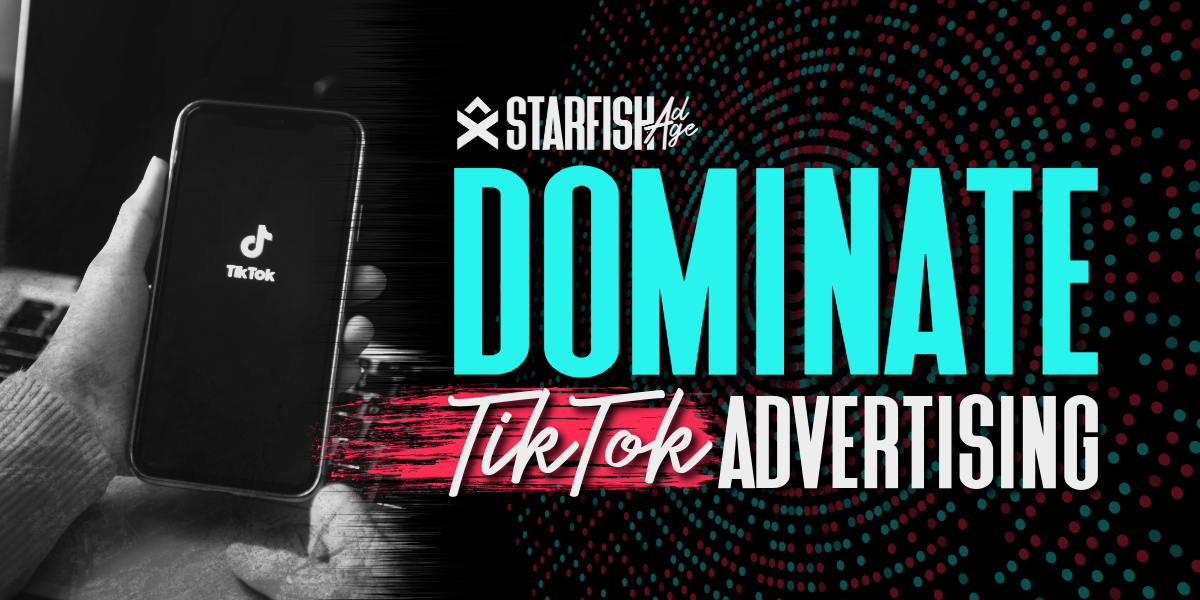
Learn how to leverage TikTok advertising, ad formats, targeting options, and best practices to increase brand awareness, and drive sales.

Learn about Connected TV (CTV) ads, their benefits, and how they work. Understand programmatic CTV advertising for effective digital marketing campaigns.
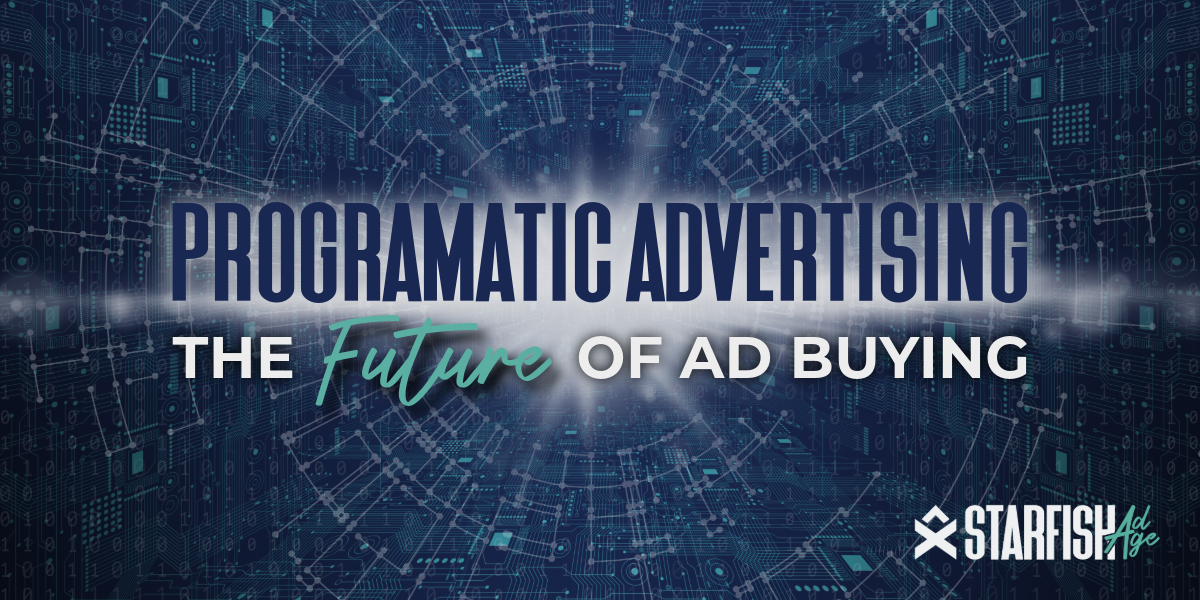
Discover the benefits of programmatic advertising, an automated method of buying digital ad space that enhances targeting, efficiency, and campaign performance.
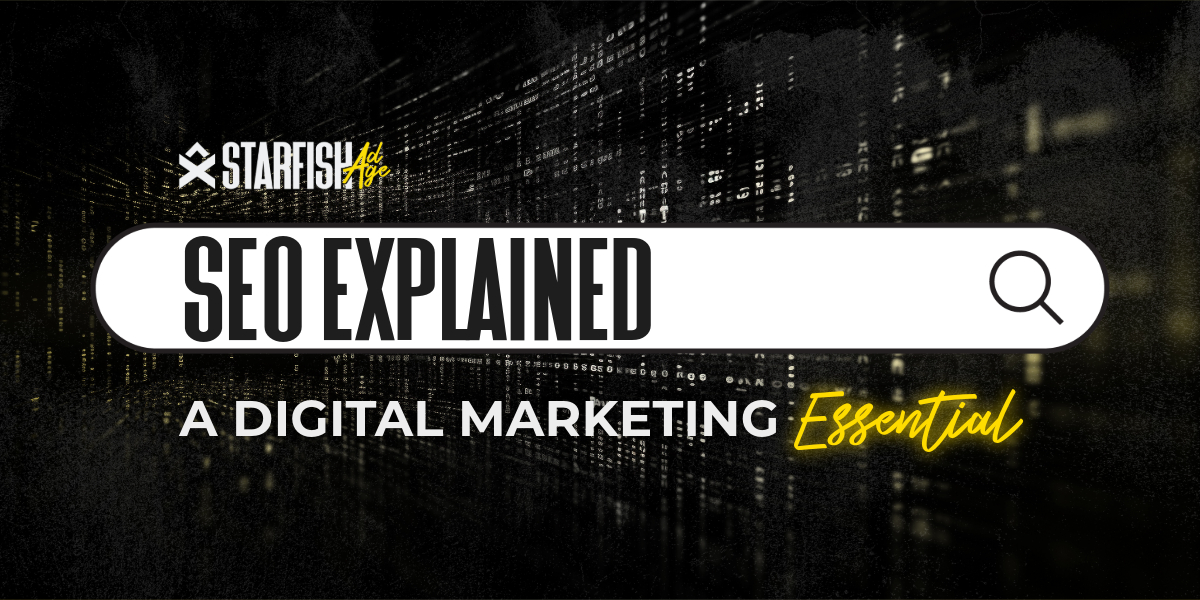
Discover what SEO in digital marketing is and why it matters. Learn how search engine optimization can increase your business’s success.

Learn how to advertise on Google effectively. The basics of Google Ads, from setting up your account to targeting your audience and driving qualified traffic.

Discover how to advertise on Facebook. Learn about Facebook ad campaigns, targeting options, and ad formats to reach your audience effectively.

Discover how to advertise on Facebook. Learn about Facebook ad campaigns, targeting options, and ad formats to reach your audience effectively.
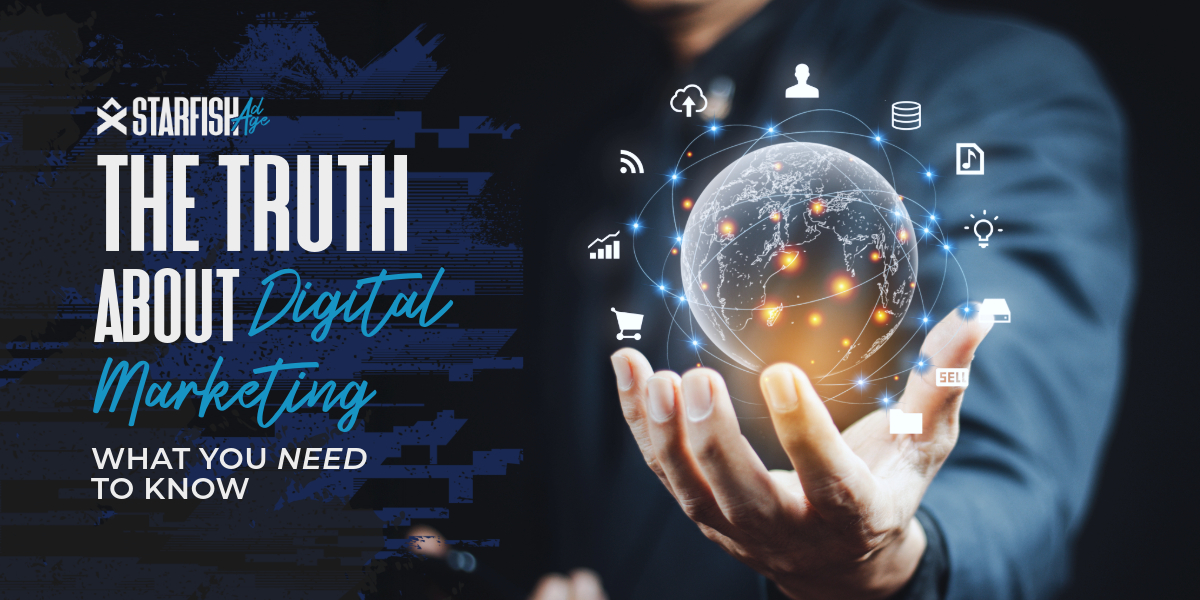
Explore digital marketing essentials for modern businesses. Explore the history, strategies, data-driven targeting, message marketing, and content creation.
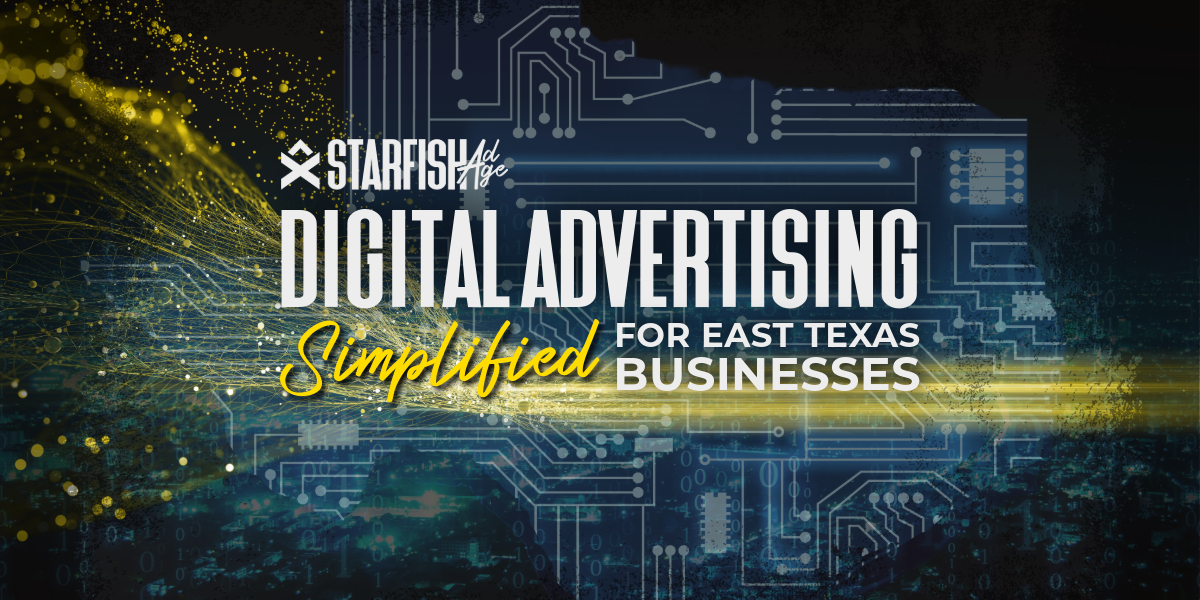
Explore the fundamentals and advanced strategies of how digital advertising works. Learn how to leverage targeted ads, and engage with your audience effectively.

Starfish Ad Age provides tips and strategies for choosing the best advertising platforms to promote your business, ensuring growth and maximizing ROI.

Discover how to get ahead in advertising with effective strategies and insights on how to grow your business in today’s digital environment.

Learn how brand identity, effective logo design, and a cohesive brand strategy can transform your business. Explore essential tips for impactful branding.
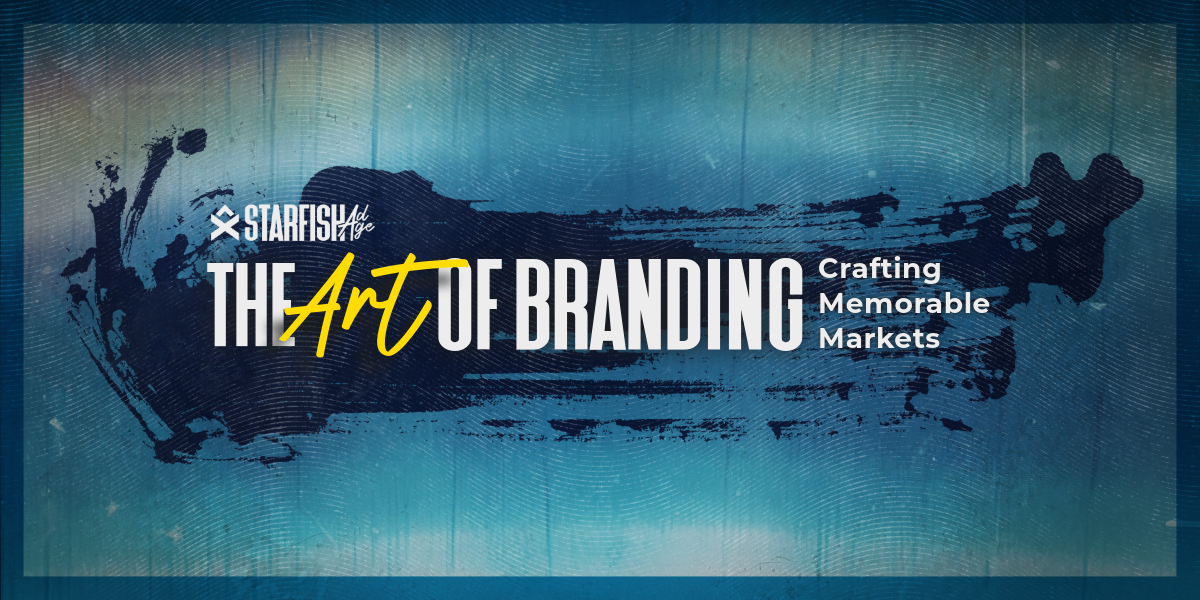
Learn how brand identity, effective logo design, and a cohesive brand strategy can transform your business. Explore essential tips for impactful branding.
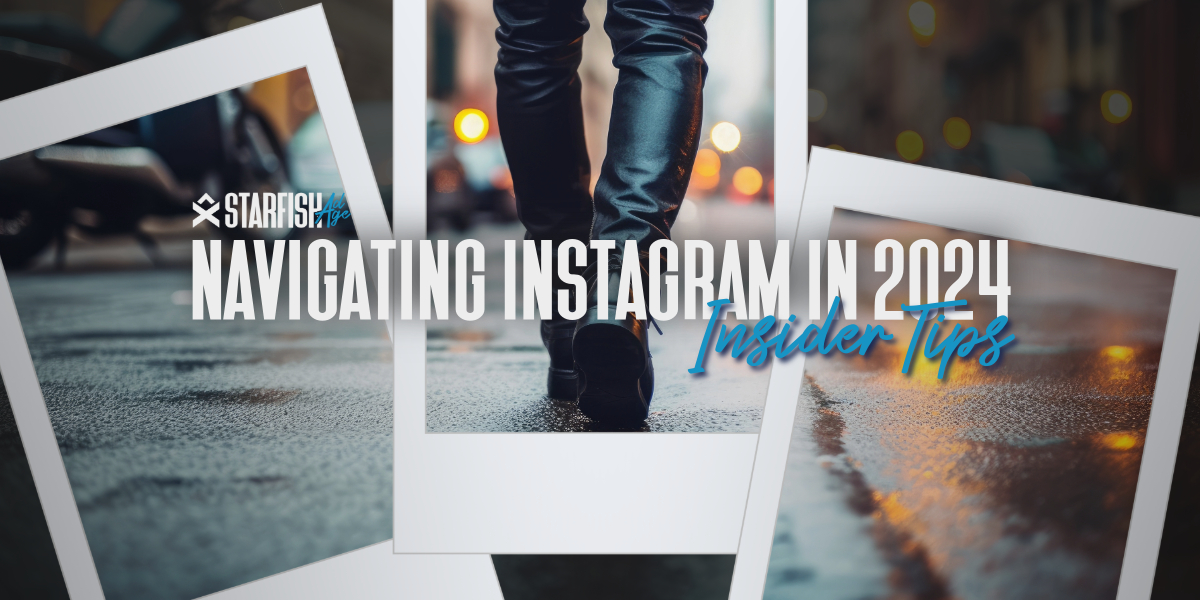
Gain insights from success stories and FAQs to optimize your Instagram strategy and connect with your target audience more effectively than ever before.
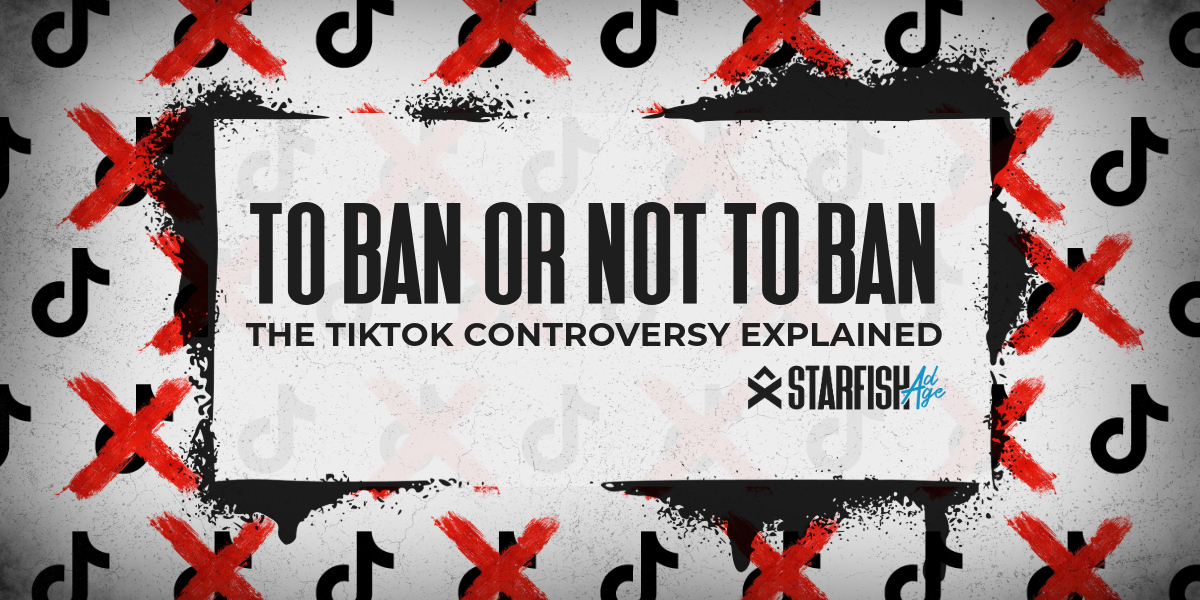
Explore the comprehensive guide to the TikTok ban debate in the U.S., including the rise of TikTok, concerns over privacy and national security, and the implications for users and the broader social media landscape.
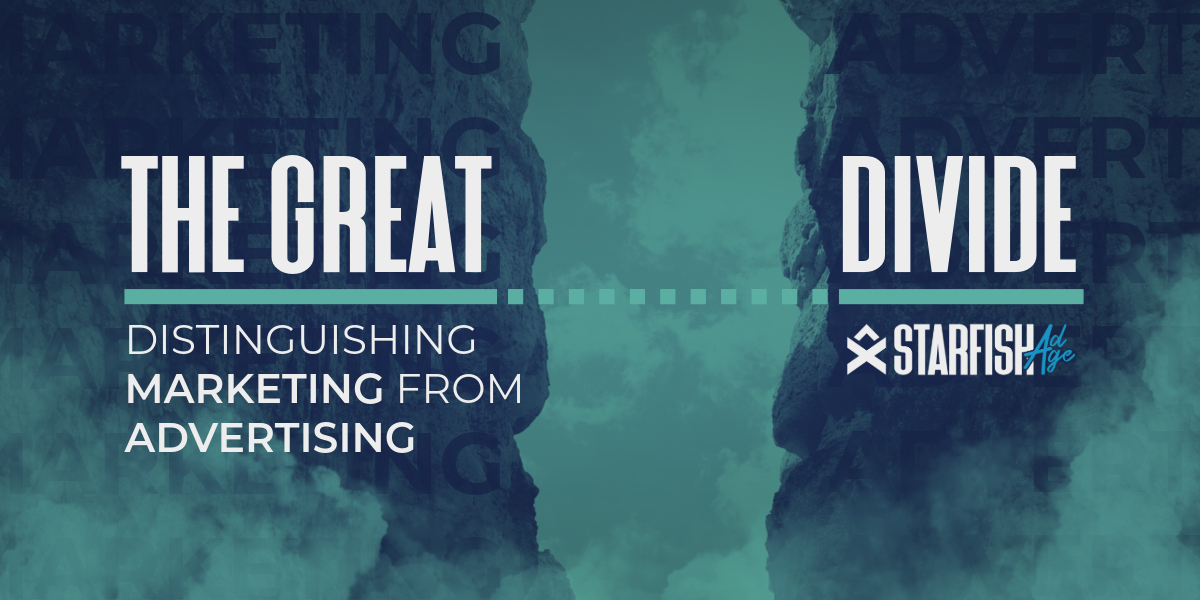
Explore the essential distinctions between marketing and advertising and learn how each plays a unique role in business success.

Discover how social media transforms business promotion, enhancing brand awareness, and driving sales through ads, content, and influencer partnerships.

Discover how AI enhances efficiency while human creativity remains essential. Learn what AI can and can’t do, its benefits, challenges, and the future of AI in digital marketing.
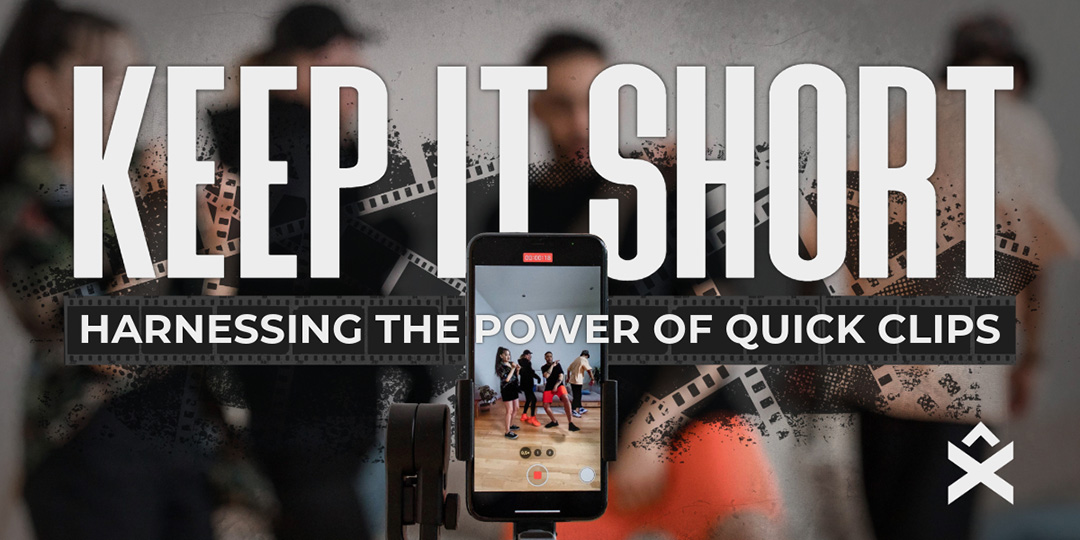
Discover key strategies for East Texas businesses to engage audiences and enhance marketing with short-form videos.

What is inclusive marketing, and how can it transform your brand’s relationship with diverse audiences?

In marketing, the impending demise of third-party cookies is not just a challenge; it’s an opportunity to innovate.
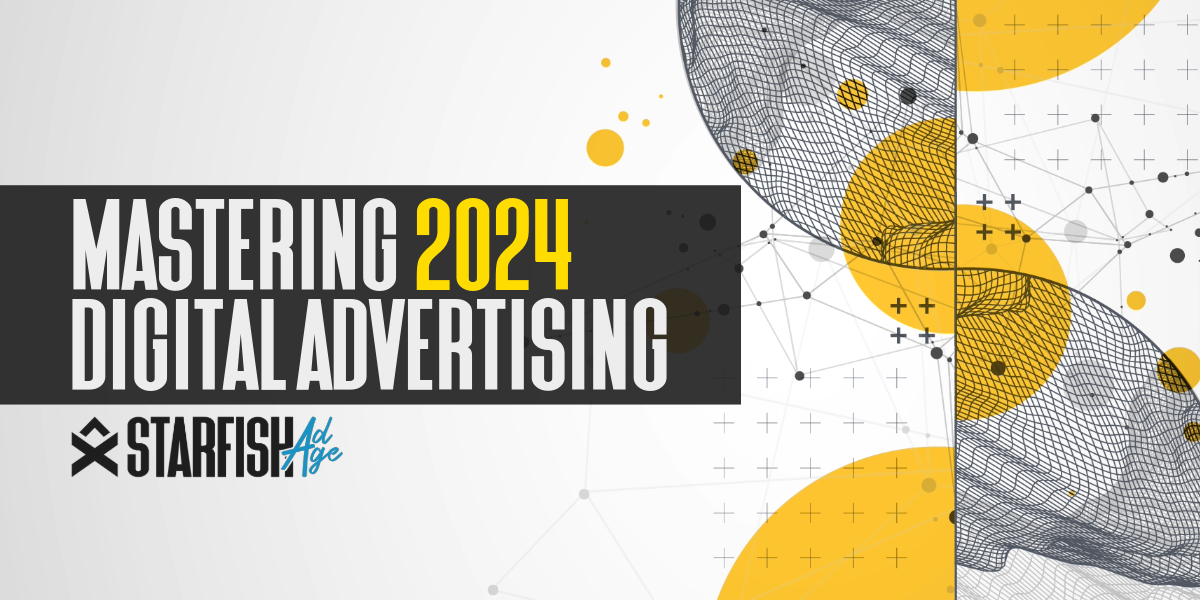
This guide simplifies this complex process and provides a clear roadmap towards becoming proficient in digital advertising.
All Rights Reserved | Starfish Ad Age LLC | 2023 | Privacy Policy